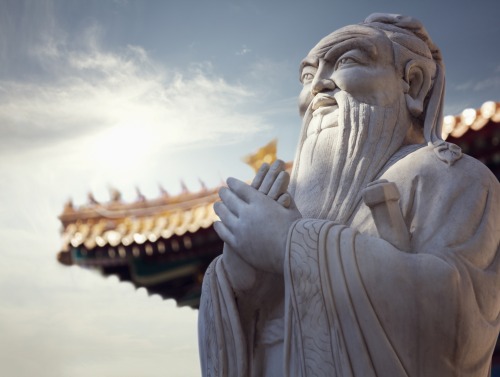Core: Enduring Questions
Consider Fundamental Questions
Developing a keen and creative sense of the narratives that shape fundamental questions about the needs and challenges of human societies is necessary to accurately identify and comprehend the issues of our changing world, as well as to lead a consciously contributive life.
Core is a two-course sequence that uses classic texts to explore some of the major questions that humanity has asked itself and to encourage students to engage in critical thinking and discussion.
Core 1 and 2 focus on some of the narratives addressing perennial and enduring questions of human societies that shape and underlie our ecosystem of thought—narratives that have changed dramatically over time and have found various expression in different cultures and traditions. Such questions by their nature require you to integrate your experiences and knowledge from multiple perspectives and disciplines. Originally written for remarkably different audiences and for purposes different from today’s prevalent uses of the narrative, these historically influential works demand that you stretch your abilities in understanding these expressions of thought, and think critically as you engage these sources.
Core 1 is taught in the Fall Block and it is the first course you will take at SUA. Core 2 is taken in the spring semester of your second year. Both courses are capped at 12 students and are meant to include intensive reading and discussion in a seminar-style class. Though sections are often built upon a set of common readings, individual faculty members also shape the course through reading selections drawn from their special training, expertise, and interests.
You will learn to:
- Demonstrate knowledge of the commonalities and differences of the human experience from multiple perspectives,
- Develop critical thinking skills to evaluate this knowledge in relation to your own life, and
- Speak and write effectively about your evaluation of this knowledge.
Core 1
CORE 100 — The Enduring Questions of Humanity
An important goal of Core 1 is to liberate former high school students from the expectations of others, including their teachers, in order to acquire a critical and comparative appreciation of how societies are understood and organized. The use of classical texts from Eastern and Western philosophy in Core 1 complements the use of the more contemporary texts in Core 2 in tracing and examining key narratives that have shaped and continue to influence current ecosphere of thought and argument. Core 1 helps students find answers to these enduring questions in ways that tell us about ourselves and shapes the myriad challenges we face today. Core 1 serves as a gateway to the greater dialogue between ideas, people, and cultures that a student will experience at SUA and beyond. It also provides an initial immersion into the process of higher learning by introducing skills for critical thinking.
Core 1 will introduce you to the university as a whole, while developing your reading and writing abilities, as well as speaking and critical thinking skills. You will gain interdisciplinary skills through multicultural readings as well as by experiencing a diverse learning environment through interactions with classmates from various backgrounds.
Selected Readings – Core 1
Core 2
Core 2 focuses on narratives that address Enduring Questions of Humanity in a social and environmental context. Through self-directed inquiry students are encouraged to explore where our major human narratives come from, what role they have played and continue to play in major social movements, philosophies, the sciences, and what meanings they have in the world of the 21st century.
CORE 200 — The Enduring Questions in Contemporary Contexts
This course examines how the central questions posed in Core 1 continue to be addressed in the contemporary context. Through readings on the environment, historical development of human societies, current issues of social inequality, as well as personal and group identities and relationships, Core 2 explores some of the major issues facing humanity today. Core 2 prepares students to become active and engaged as well as informed citizens. Core 2 typically focuses on primary texts that provide the foundations for a liberal arts education.
- What is the nature of human beings, human knowing, human societies, and the human condition?
- What does it mean, and what has it meant, to be human?
- How is human experience relayed and how can meaning be made?
- What is the relationship between humans and the environment?
- What does it mean, and what has it meant, to be part of a community?
- What is the relationship between self and society? How are our collective and individual identities formed?
- What are the major sources and types of inequality in human societies? Why do humans construct ideologies and systems of inequality?
- What are different ideas about what social justice would look like? Can that be created through governance, education, changing attitudes?
- What is required of me to make the world better?
Representative Quotes – Core 2
The readings used in our Core 2 sections are expansive and include modern authors commenting on the social conditions of today’s societies, and thinkers from the 19th and 20th century who have described social theory, economics and politics, and other aspects of the human condition in a social context.






